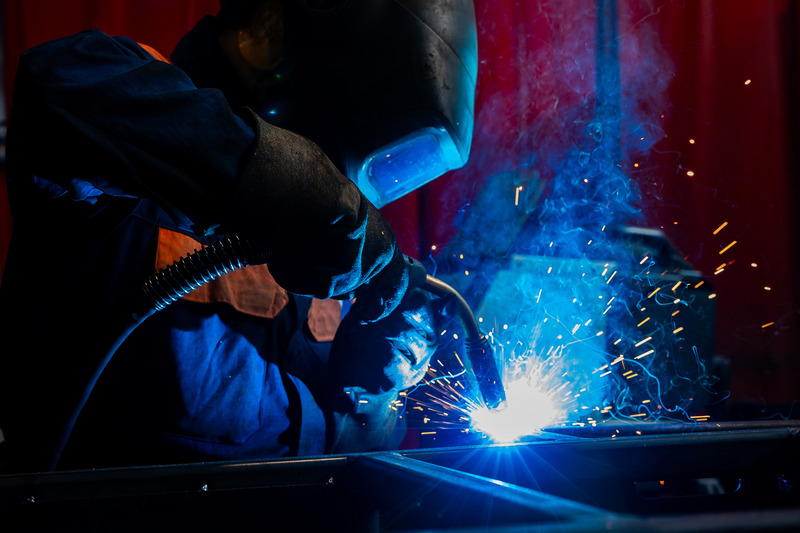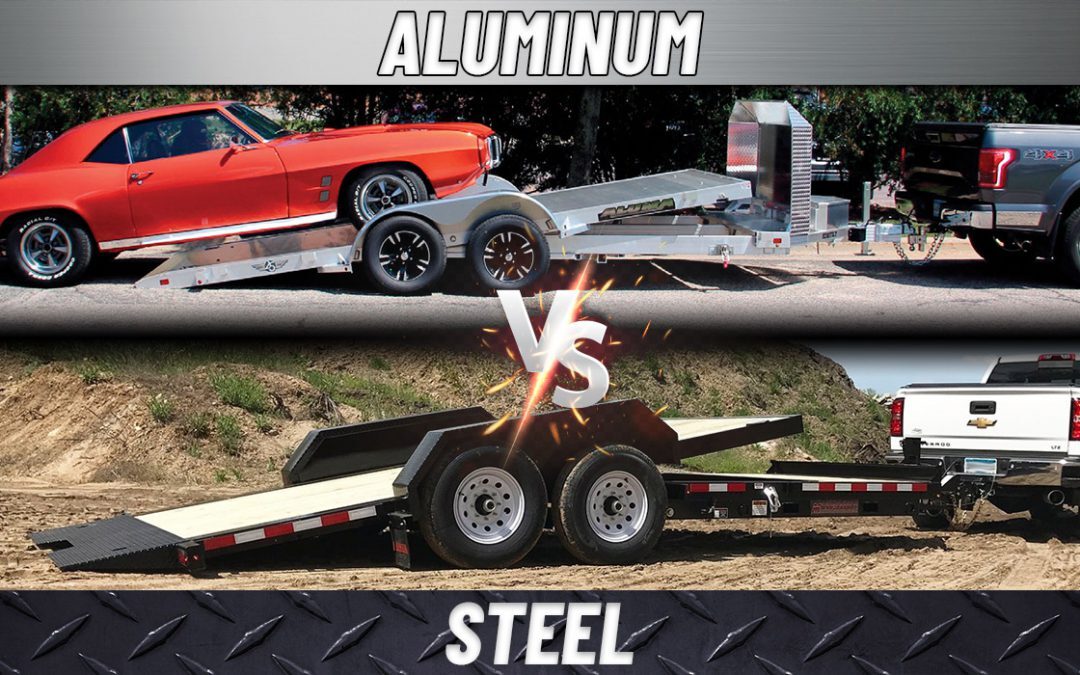Steel vs. Aluminum Showdown
If you’re in the market for a new trailer, you’ve likely noticed two different types of trailers as you’ve begun your search: aluminum and steel. These are the primary materials used to make trailers, and while it may seem like a small difference, there are pros and cons to each material. Each type of metal has different features that may suit you better depending on what you’re looking to get out of your trailer. It’s essential to understand the breakdown of aluminum vs steel trailers before you make a purchase.
Price
When it comes to trailer purchase costs, steel is almost always the winner. Buying a steel trailer is cheaper than an aluminum trailer upfront, but you’ll want to keep in mind that steel requires a little more upkeep than aluminum does. With a steel trailer, you may have to invest in repainting and rustproofing it every now and then. On the other hand, with aluminum, a quick acid bath will generally help keep it looking as good as new. For that reason, aluminum trailers typically have a higher resale value than steel and may be the more cost-effective purchase in the long run. However, if a lower initial purchase price is more important to you, steel trailers are likely the way to go.
Corrosion
That brings us to the topic of corrosion. Aluminum has better longevity than steel and is less prone to rust. It does oxidize, which is why the aforementioned acid bath is good for it every once in a while, but you won’t need to worry about as many preventative measures with aluminum vs steel trailers.
One important question to ask yourself is what kind of environment you plan to use your trailer in. If you expect to drive your trailer on salted roads in the Midwest during winter, then your trailer is going to be more prone to rust. Also, consider the type of jobs you’ll be using it for. If you’re going to be hauling livestock, it’s important to know that the acidity of animal waste can eat through steel floors and corrode them faster. While aluminum may not be as tough as steel, its resistance to corrosion means it often has a longer lifespan with less maintenance required.

Strength
Steel takes the prize in this category. Steel trailers are stronger and more rigid, meaning they’re less likely to bend or dent. However, it’s still important to know that aluminum trailers are mostly aluminum alloys, meaning they’re made of a combination of different types of metals with aluminum as the main ingredient. Aluminum alloy is stronger than pure aluminum, and some aluminum alloys are stronger than others.
While steel is stronger, once it bends, it’s tough to get it back into its original shape. It doesn’t take as much force to bend aluminum, but its flexible quality means small dents and bends are easier to correct and repair. One thing to ask yourself here is what kinds of surfaces you’ll be driving on. Aluminum is less likely to bend if you’re driving on mostly flat surfaces, but if you’re driving through rough terrain, you may want to consider steel.
Customization and Repairs
Outside of pushing dents back into place, there are more involved repairs and customizations you may want to consider. Steel trailers are often easier and less expensive to modify or repair due to the widespread availability of steel and the ease of welding it. This could be a significant advantage if you anticipate needing custom modifications or are equipped to perform your own repairs.

Aluminum trailers, while durable and corrosion-resistant, can be more challenging and expensive to repair due to the specialized welding techniques required. This could lead to higher costs and longer downtimes in the event of damage, which is a consideration that should not be overlooked when you’re choosing a new trailer.
Weight
Finally, weight is the last essential consideration in the aluminum vs steel trailers debate. It’s also one of the main factors to consider when you’re looking at trailers for sale in your area. The lighter your trailer is, the more cargo weight you can haul. Aluminum is the best choice if you want to keep your trailer weight low, as it’s a lighter material than steel. A trailer with heavier weight means an additional load for your truck, which in turn means your fuel economy won’t be as good and you can carry less cargo before maxing out your tow capacity. With aluminum, you can haul more cargo with the same amount of fuel as you can with steel.
Choosing Your Trailer Material
In short, aluminum trailers are less prone to rust, lighter, and typically last longer. Steel is cheaper at initial purchase and stronger. The right material for you depends on your budget and what type of work you plan to carry out with your new trailer. Our staff at Kate’s Trailer Sales is here to help walk you through the process of deciding whether an aluminum or steel trailer suits you best, so you can put your new trailer to work as soon as possible. Contact us today to get started on figuring out which trailer is right for you!

